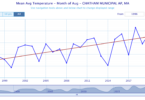CAPE COD – Cape Cod real estate prices, fueled in part by reactions to Covid-19, are appreciating in value at the fourth highest rate of any “metro area” in the United States, according to the National Association of Realtors. The hot market, if it continues, will arguably change the future of Cape Cod in fundamental…
You may also like
Talking To Anti-ICE Protesters At The Weekly Falmouth Protest – VIDEO
“Making dreams come true at Mark’s Music”: Mark Filteau, A Profile
Frozen Out: As ICE Acts on Cape Cod, Locals React
A Paywall For Our Longform Stories
Four Sportswriters, Boston’s Mount Rushmore, Go To A Cape League Game: SLIDE SHOW + Essay
Happy Fourth of July – It all feels so… “normal” – an Essay
Harvest Days: Remembering Michael Pearson’s Harvest Gallery Wine Bar
The Grab Brothers Make Hippie Happy Music – A Profile
“No Kings” Protests in Falmouth & Provincetown – VIDEO + ESSAY
RIP Bruce Maclean – “the last old-time freak”
The “Functional Art” of Walter Baron, Boatbuilder – A Profile
Follow The Money, and The Good Vibe; Why Shop Local – An Essay
Making Things Happen; Attorney Bruce Bierhans – A Profile
The “Y” in the road; Another “Most Important Election Of Our Lifetime” – An Essay
Are We Winning? In Our Summer Paradise, Summer Is Warmer & Longer
Dream Job: Rich Rogers’ Blue Collar Path to WMVY – A Profile
Happy? Fourth Of July – An Essay
Wear A Cape Cod Wave Hat Near Cape Cod Waves
Christmas Cavalcade For The Homeless Set For December 17 At The Music Room In Yarmouth
Looking Back – 10 Stories, 10 Years
My Dream 10-Year Anniversary Concert That Did Not Happen
Cape Cod Wave Magazine is 10 Years Old
Dan McKeon: Ptown’s Available Housing Matchmaker – A Profile
Mwalim: Da Phunkee Professor, Artist, Writer & Groovalotto – A Profile
Martha’s Vineyard, Political Symbol – An Essay
Zoe Lewis: Provincetown’s Jazzy Zen Vaudeville Vagabond – A Profile
Eradicating Racial Wealth Gap Theme for Hyannis Event
ArtsCape: The Quirky Creations of Sue Beardsley
George Sylvestre, Fishing The Brewster Flats – A Guide’s Story
Andy Dufresne: 91 Candles For Falmouth’s Civic-Minded Barber – A Profile
About the author
Brian Tarcy
Brian Tarcy is co-founder of Cape Cod Wave. He is a longtime journalist who has written for the Boston Globe, Boston magazine, the Cape Cod Times and several other publications. He is the author of "YOU CAN'T SELL RIGHT FIELD; A Cape Cod Novel." He is also the author or co-author of more than a dozen mostly non-fiction books, including books with celebrity athletes Cam Neely, Tom Glavine and Joe Theisman. His previous book was, "ALMOST: 12 Electric Months Chasing A Silicon Valley Dream" with Hap Klopp,who created the iconic brand, The North Face.
For more information, see Briantarcy.com
Brian is a long-suffering Cleveland Browns fan with a long-running NFL predictions/political satire column connecting weekly world events to the fate of his favorite team, now at Whatsgonnahappen.com.






























